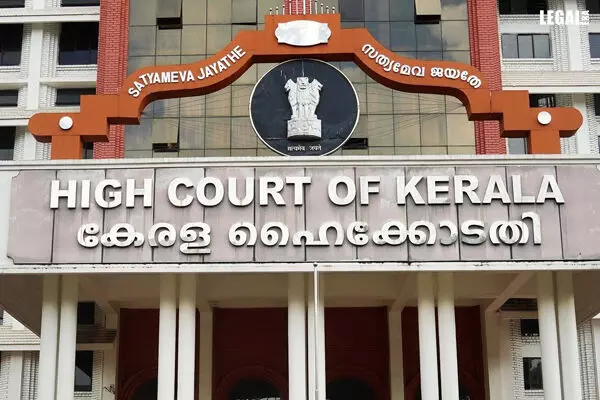- Home
- News
- Articles+
- Aerospace
- Agriculture
- Alternate Dispute Resolution
- Banking and Finance
- Bankruptcy
- Book Review
- Bribery & Corruption
- Commercial Litigation
- Competition Law
- Conference Reports
- Consumer Products
- Contract
- Corporate Governance
- Corporate Law
- Covid-19
- Cryptocurrency
- Cybersecurity
- Data Protection
- Defence
- Digital Economy
- E-commerce
- Employment Law
- Energy and Natural Resources
- Entertainment and Sports Law
- Environmental Law
- FDI
- Food and Beverage
- Health Care
- IBC Diaries
- Insurance Law
- Intellectual Property
- International Law
- Know the Law
- Labour Laws
- Litigation
- Litigation Funding
- Manufacturing
- Mergers & Acquisitions
- NFTs
- Privacy
- Private Equity
- Project Finance
- Real Estate
- Risk and Compliance
- Technology Media and Telecom
- Tributes
- Zoom In
- Take On Board
- In Focus
- Law & Policy and Regulation
- IP & Tech Era
- Viewpoint
- Arbitration & Mediation
- Tax
- Student Corner
- AI
- ESG
- Gaming
- Inclusion & Diversity
- Law Firms
- In-House
- Rankings
- E-Magazine
- Legal Era TV
- Events
- News
- Articles
- Aerospace
- Agriculture
- Alternate Dispute Resolution
- Banking and Finance
- Bankruptcy
- Book Review
- Bribery & Corruption
- Commercial Litigation
- Competition Law
- Conference Reports
- Consumer Products
- Contract
- Corporate Governance
- Corporate Law
- Covid-19
- Cryptocurrency
- Cybersecurity
- Data Protection
- Defence
- Digital Economy
- E-commerce
- Employment Law
- Energy and Natural Resources
- Entertainment and Sports Law
- Environmental Law
- FDI
- Food and Beverage
- Health Care
- IBC Diaries
- Insurance Law
- Intellectual Property
- International Law
- Know the Law
- Labour Laws
- Litigation
- Litigation Funding
- Manufacturing
- Mergers & Acquisitions
- NFTs
- Privacy
- Private Equity
- Project Finance
- Real Estate
- Risk and Compliance
- Technology Media and Telecom
- Tributes
- Zoom In
- Take On Board
- In Focus
- Law & Policy and Regulation
- IP & Tech Era
- Viewpoint
- Arbitration & Mediation
- Tax
- Student Corner
- AI
- ESG
- Gaming
- Inclusion & Diversity
- Law Firms
- In-House
- Rankings
- E-Magazine
- Legal Era TV
- Events
Kerala High Court: Authority bound to Re-Assess the Rate of Basic Tax Post Change in the Nature of Land

Kerala High Court: Authority bound to Re-Assess the Rate of Basic Tax Post Change in the Nature of Land
The Kerala High Court by its single judge Justice N. Nagaresh has held that as the nature of the land of the petitioner has been permitted to be changed pursuant to the passing of a statutory order under the Kerala Land Utilization Order, 1967, the competent authority is bound to re-assess the rate of basic tax and to make necessary entries in the Basic Tax Register after verifying the veracity and genuineness of the permission obtained.
The factual matrix of the case was that the petitioner claimed to be the owner of the property in Chiyyaram Village in Thrissur District. The property was purchased in 1997. The predecessor-in-interest of the land approached the respondent, the Revenue Divisional Officer, invoking the provisions of the Kerala Land Utilisation Order, 1967, seeking to permit him to use the land for non-agricultural purposes.
The Revenue Divisional Officer passed an order under Clause 6 of the Kerala Land Utilization Order, 1967, permitting the use of the land for non-agricultural purposes.
Even though the order was passed under the Kerala Land Utilisation Order, 1967, in the year 1996, the land was not re-assessed for fixing the rate of Basic Tax, and the property of the petitioner was still described as paddy land in the Revenue records.
Thereafter, the petitioner submitted an application invoking Section 6(3) of the Kerala Land Tax Act, 1961, seeking to re-assess the basic tax and to make necessary entries in the basic tax register.
However, the tahsildar did not pass any orders on the application.
The Court while relying on the decision in Mary Abraham vs. State of Kerala and others, observed that once an enabling order is passed under Rule 6(2) of the Kerala Land Utilisation Order, 1967, permitting conversion of the land, then the earlier entries in the BTR showing the land as Nilam, Paddy Land, etc. would become superfluous and redundant, and the competent Revenue officials like the Tahsildar are obliged under law to make a fresh assessment of the property under Section 6A of the Kerala Land Tax Act, 1961.
The Court further referred the decision passed in the case of District Collector, Ernakulam and others vs. Fr.Jose Uppani and others (2020) wherein it was held that when an applicant has secured orders under the Kerala Land Utilisation Order prior to the cut-off date on which Section 27A was introduced to the Kerala Conservation of Paddy Land and Wetland Act, 2008, the competent Revenue officials were bound to consider the subsequent application submitted under the provisions of the Kerala Land Tax Act, 1961.
In this regard, the Court observed, “As the nature of the land of the petitioner has been permitted to be changed pursuant to passing of a statutory order under the Kerala Land Utilisation Order, 1967, the competent authority is bound to re-assess the rate of Basic Tax in respect of the land and to make necessary entries in the Basic Tax Register, if necessary, after verifying the veracity/genuineness of the permission obtained under the Kerala Land Utilisation Order, 1967 produced by the petitioner.”
Therefore, the Court ordered the Tahsildar to consider the application submitted by the petitioner, in accordance with the law, and pass appropriate orders thereon within a period of one month.



